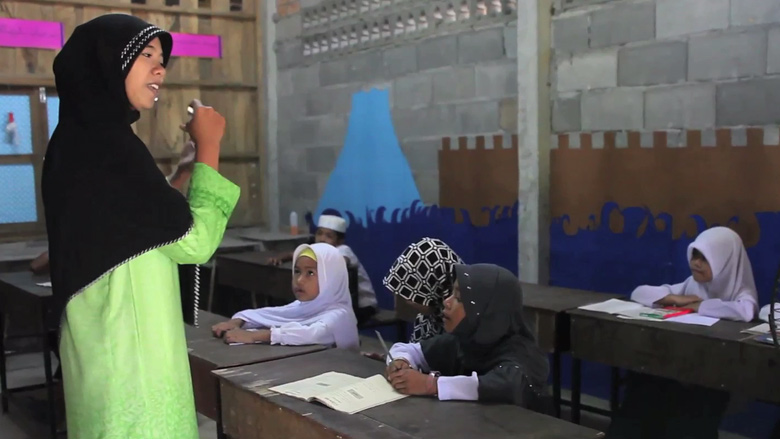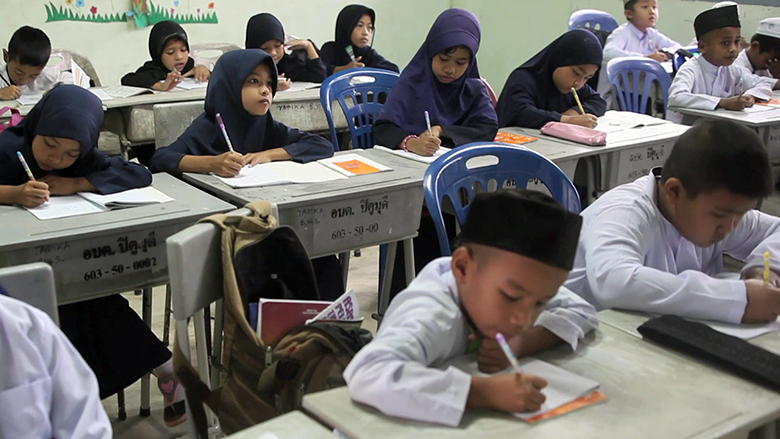Strengthening the Tadika school curriculum
Six years ago, Bungaraya worked with communities and schools to create one effective curriculum. This included improving teacher quality and learning in Tadika schools.
“Since the conflict started, there are many NGOs working here. But none of them are working with Tadika schools,” Hasan says. “That’s why we decided to fill this gap.”
With support from the State and Peacebuilding Fund and Korea Trust Fund’s Expanding Community Approaches in Conflict Situations in Three Southernmost Provinces in Thailand project, Bungaraya began introducing the idea to villages.
“At first, villages did not welcome us. They were satisfied with how they ran Tadika schools,” Hasan said. But they worked on gaining the villagers’ trust. “We talked with village leaders and parents to explain why education is important and together, brainstormed ideas on how the curriculum can maintain their local culture and identity.”
This year, Bungaraya launched the Kurikulum Standard Pendidikan Islam (KSPI). More than 2,000 Tadika schools in Southern Thailand are starting to implement it. Workshops are also being organized for teachers to improve teaching methods, prepare them for work in conflict areas and how to teach peace in classes.
“Before, we taught however we wanted. There was no structure. We taught straight out of the textbook and students didn’t pay attention,” said Zaliha Sulung, a teacher at Nurul Islam Tadika School in Pattani. “Now, we plan ahead and are prepared before class.”
Incorporating peace into the curriculum
Apart from strengthening the school curriculum, integrating peace activities is also a goal of the project. Lessons teach children to be good, smart and generous. Recreational activities also encourage students to help others.
“The curriculum covers different topics—from morality, human rights to human relationships,” said Abdulmuhamin Salaeh, President of the Foundation of Tadika Coordination Centers. “Learning this helps start the peace process – from one individual to another.”
Building trust between schools, communities and the government
“Planning and developing the unified curriculum brought together teachers, villagers and the government. When local authorities went to Tadika schools for inspection visits, they got a better understanding of what is being taught and this built trust,” said Hasan.
This has helped schools get rid of misconceptions that it promoted separatism and extreme ideologies. Since the new curriculum was implemented, the Ministry of Education has seen children’s performance improve, which helped change their perception of Tadika schools.
Based on surveys and interviews by Bungaraya, village leaders and parents also acknowledge the benefits of their kids’ newly improved education. Communities are much more involved and work with teachers to help improve the school environment.
Hasan’s organization is a testament to education’s potential in building peace and trust in Southern Thailand. It is possible to build peace and teach people to live in diverse societies when whole communities are acknowledged and represented.


